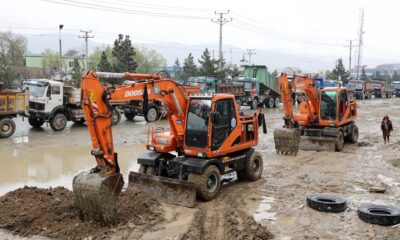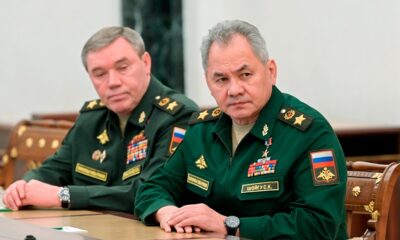Latest News
Calls to end ban on women working continue
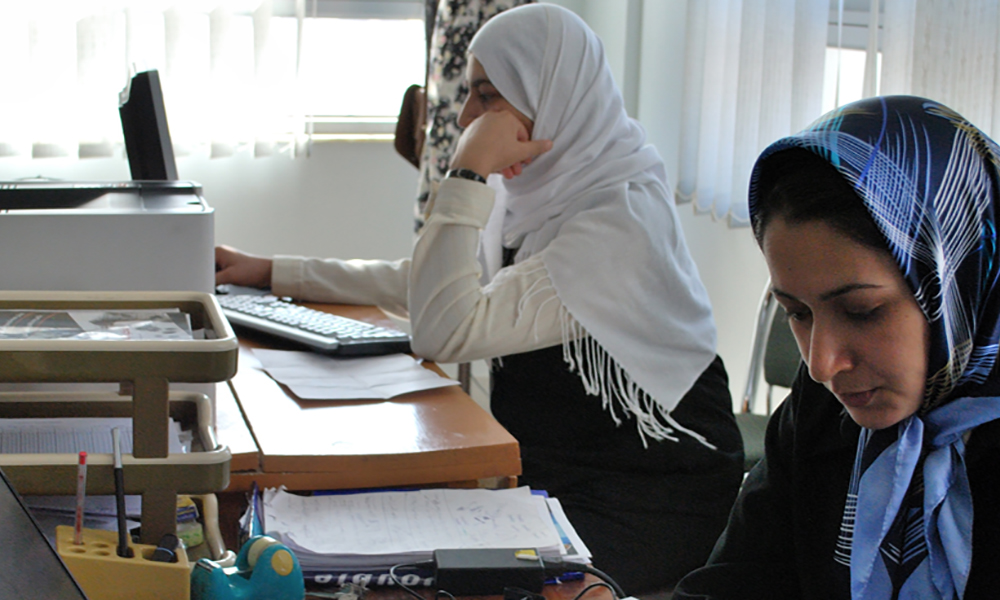
One year after the ban was imposed on women working in some fields in Afghanistan, the special representative of the United States and the United Nations have emphasized that the ban has jeopardized the process of providing assistance.
They have demanded the cancellation of the ban.
I’m December last year, the Ministry of Economy issued a decree prohibiting women and girls from working for non-governmental organizations.
The UN special rapporteur on human rights and the representative of the United States of America on human rights and women’s affairs for Afghanistan have once again called for the cancellation of the decree banning the work of women by the Islamic Emirate of Afghanistan.
Richard Bennett, the special rapporteur for human rights of the United Nations for Afghanistan, has once again called for the lifting of the ban on women’s work in this country.
Bennett emphasized that the role of women in the vital economic situation and their contribution to the prosperity and progress of the Afghan society is essential.
Bennett wrote in a message on X: “One year ago #Taliban [Islamic Emirate of Afghanistan] banned women from working in NGOs. Once again I urge the lifting of the ban. Education and work are vital to a full and dignified life, women are crucial for the economy and their contributions are essential for the well-being and progress of #Afghan society.”
At the same time, Rina Amiri, the special representative of the United States of America for human rights and women’s affairs for Afghanistan, also said on the anniversary of the ban on women’s work by the Islamic Emirate in Afghanistan that the ban on women’s work in non-governmental organizations and international organizations to provide humanitarian aid faces a serious threat.
Amiri wrote on X that the request to cancel this order should be strengthened.
A part of Amiri’s message states: “The Taliban’s suspension of Afghan female NGO and UN staff poses a serious threat to the delivery of critical humanitarian assistance. Even where women have negotiated the space to work, the ban leaves them vulnerable to intimidation & threats.”
She emphasized: “You should cancel the slogan of bans, let’s strengthen it among Afghans.”
This is while the Islamic Emirate of Afghanistan announced a ban on women’s work in non-governmental institutions and international organizations in December of last year.
After this decree, a large number of Afghan women stayed at home. Many international organizations, whose aid process was more dependent on women’s work, stopped or suspended their activities in Afghanistan.
Earlier, the United Nations and other international aid agencies called the decision to ban women’s work another violation of women’s fundamental rights and against the United Nations Charter and stated that the decision will seriously affect the people of Afghanistan.
Despite the repeated warnings and requests of the international community to lift the ban on women’s work and education, the Islamic Emirate has not taken any action in this regard in more than two years.
Latest News
Three road construction projects launched in Kabul
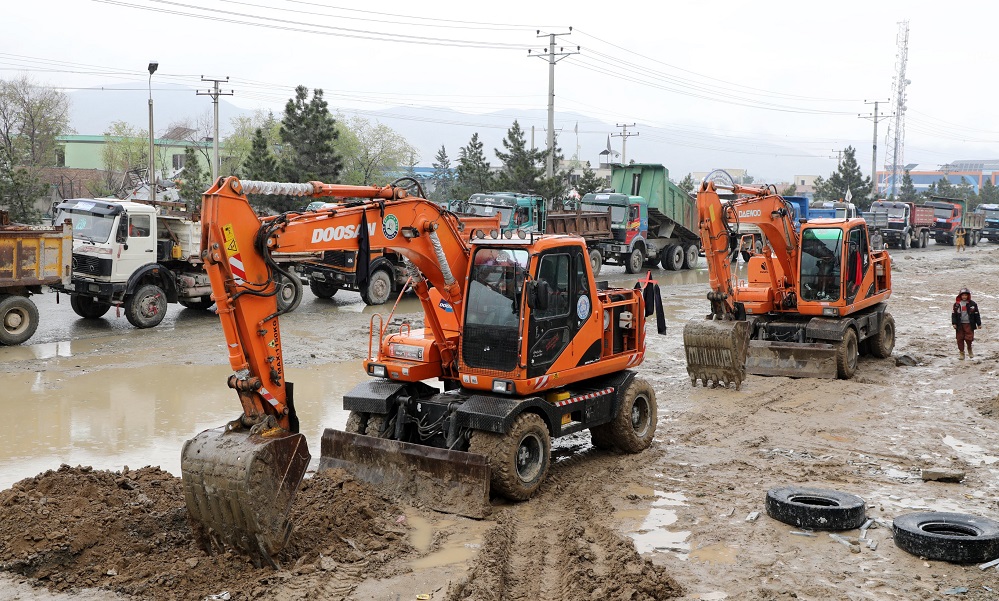
Three road construction projects worth about one billion Afghanis started in capital Kabul on Saturday.
The projects were inaugurated by Deputy Prime Minister for Economic Affairs Mullah Abdul Ghani Baradar.
The projects are: the second phase of Kotal Khairkhane road, the first part of the Shahid square to Qasaba, and the Airport road to Gumruk.
In the inauguration ceremony, Mullah Baradar said that Kabul municipality is working hard to beautify and regulate the city, and people should cooperate with the government in protecting public benefit projects.
He directed the officials of Kabul municipality to complete the mentioned projects on time and with good quality.
The second phase of Kotel Khairkhaneh road is 2.5 kilometers long and 60 meters wide. Thie road will cost 364 million Afghanis and will be completed in 20 months.
The Shahid square-Qasaba road is 1.8 kilometers long and 45 meters wide, which will be built at a cost of 175 million Afghanis in one year.
The Airport-Gumruk road is 2.7 km long and 60 meters wide, which will be completed at a cost of 407 million Afghanis in 20 months.
The projects are funded by Kabul Municipality.
Latest News
Russian defense minister says main threat for SCO countries emanates from Afghanistan
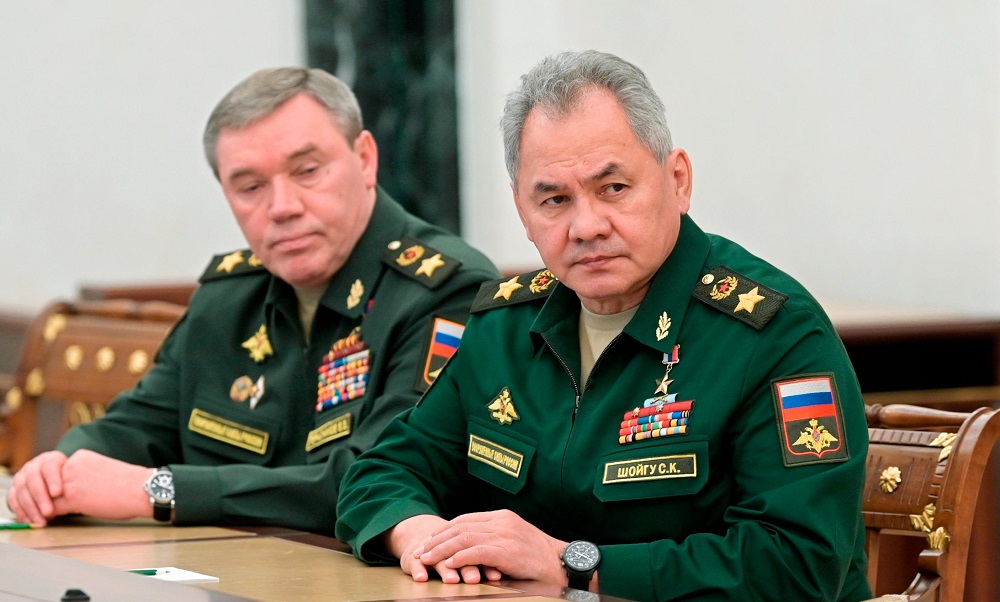
Russian Defense Minister Sergey Shoygu said on Friday that the main threat for the Shanghai Cooperation Organization (SCO) members emanates from Afghanistan where international terrorist groups find shelter due to unstable and indefinite political situation.
Speaking at a meeting of the SCO defense ministers in Kazakhstan’s capital Astana, Shoygu said Washington has stepped up efforts to restore its positions in Central and South Asia that were lost after the withdrawal of coalition troops from Afghanistan, Anadolu Agency reported.
The military chief called “unacceptable” the deployment of the American military infrastructure in the region, arguing that intentions should be regarded as “a direct threat to stability in the SCO space.”
According to him, the US is trying to impose a new security system in the Asia-Pacific region for dominance.
This comes as the Islamic Emirate has repeatedly emphasized that it does not allow anyone to pose threats to any other country from Afghanistan soil.
Recently, Mohammad Yaqub Mujahid, Acting Minister of National Defense Mohammad Yaqub Mujahid said that no destructive groups including Daesh have physical presence in Afghanistan,
Latest News
IEA calls Mujahideen Victory Day ‘freedom day’

In a statement on the occasion of the 32nd anniversary of the victory of the Mujahideen against the then communist government, the Islamic Emirate said that it is a day of freedom of the Afghan nation.
The Islamic Emirate described the coup by People’s Democratic Party of Afghanistan on 27th April 1978 as a dark day in history, as a result of which the people of Afghanistan suffered severe human and financial losses.
The statement said that the Afghan nation suffered huge casualties in their 14-year struggle against the thoughts and actions of the communists, as 1.5 million people died and millions more faced various hardships.
“After 20 years of Jihad, our country was freed from another occupation and the Islamic system was established, so the Islamic Emirate will make its utmost efforts so that the fruits of decades of sacrifice and struggle of this nation are not wasted,” the statement said.
“It was the wish of the martyrs to fully implement the Islamic system in the country, and therefore, the Islamic Emirate is trying to facilitate development and prosperity under the shadow of the Islamic system in order to realize the goals of the Afghan people’s jihads,” it added.
-

 Latest News4 days ago
Latest News4 days agoRashid Khan named AWCC’s brand ambassador
-

 World4 days ago
World4 days agoMalaysian navy helicopters collide in mid-air, 10 killed
-

 Sport4 days ago
Sport4 days agoJaiswal ton powers Rajasthan to big IPL win
-

 World4 days ago
World4 days agoNorth Korea officials visit Iran in a rare public trip
-

 Latest News5 days ago
Latest News5 days agoAt least 1,500 families affected by recent floods: IRW
-

 Sport5 days ago
Sport5 days agoMawj Sahil player scores stunning halfway line goal in 1-0 win over Jawanan Wahedi
-

 Sport3 days ago
Sport3 days ago‘Serious talent’ Fraser-McGurk bonds with Warner to light up IPL
-

 Latest News4 days ago
Latest News4 days agoUS report cites ‘significant deterioration’ in Afghan women’s rights last year






